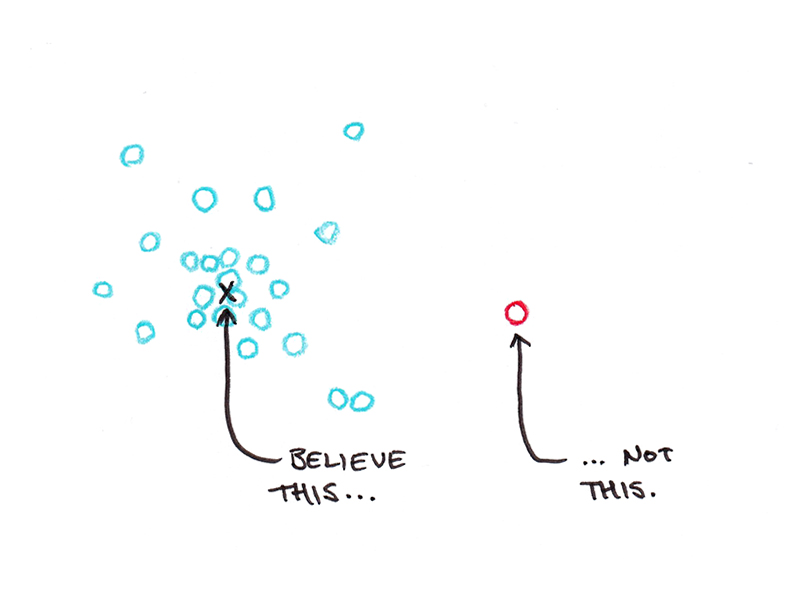Just Trust the Experts

```html
The Contrarian Trap: Why You Should (Mostly) Trust the Experts
The Case for Expert Consensus
After a deep dive into nutrition literature, I emerged with a newfound respect for mainstream science – and a disheartening realization about the prevalence of contrarian viewpoints. It seems many people readily dismiss expert consensus in favor of fringe theories, clinging to the belief that "the experts are wrong."
This isn't simply a debate about nutrition; it’s a fundamental disagreement about how we form beliefs. My view? Trust the experts. They're the smart people who’ve dedicated their lives to understanding a specific topic. Their collective wisdom, honed by research and debate, offers the most reliable path to truth.
The logic is straightforward: experts possess more knowledge than non-experts, leading to more accurate opinions. The most common expert opinion, representing the synthesis of diverse perspectives, is even more accurate. While expert consensus isn’t infallible, it's statistically more reliable than contrarian viewpoints.
Objections and Rebuttals
Naturally, this pro-expertise stance faces resistance. Let's dissect some common objections:
"Experts Ignore X"
Contrarians often accuse experts of overlooking crucial evidence. However, simplification is a strength, not a weakness, of scientific models. Experts deliberately omit less relevant factors to create workable theories. A map can't be as complex as the territory it represents.
This objection often boils down to a rephrased contrarian claim: "Factor X is important, but experts disagree." To be valid, this argument requires explaining *why* experts systematically ignore this supposedly vital factor.
"Experts are Biased"
Expert communities are indeed influenced by social factors, and biases can creep in. Ideological commitments, personal preferences, and groupthink can potentially skew research findings. For instance, I approach research on meditation or psychedelics with caution, recognizing the potential for confirmation bias in these fields.
However, we all harbor biases. Dismissing expert opinions based on perceived bias requires compelling evidence of your own impartiality – a tall order for most.
"Those Experts are Fake"
Declaring an entire field of expertise "fake" allows contrarians to reject its findings wholesale. History provides ample examples of discredited theories, from bloodletting to alchemy. But labeling modern fields like economics or psychology as "fake" is often a convenient dismissal of inconvenient truths.
The intellectual marketplace is constantly evolving. Superior approaches tend to prevail, just as chemistry replaced alchemy. The survival of a field suggests its underlying principles hold merit.
"Trusting Experts is Intellectually Lazy"
This objection misconstrues the nature of intellectual engagement. Align your worldview with expert consensus, not simple regurgitation of them. This task is hard. It requires deep study and mental model building that mirrors expert reasoning from the ground up. Getting an advanced degree takes years – a testament to the intellectual rigor involved.
True intellectual laziness lies in clinging to simplistic narratives rather than grappling with the complexities of expert knowledge.
Moderating Factors
My advice to trust experts comes with caveats:
Degrees of Belief
Experts aren't always calibrated in their confidence levels. While you should generally trust their *what*, their *how strongly* requires critical evaluation. I trust quantum mechanics more firmly than nutritional science. Skepticism, particularly in less established fields, can be warranted.
The Role of Contrarianism
Ironically, experts aren't always incentivized to simply maximize truth. They strive for novel insights that shift the consensus. This intellectual ferment, driven by (often misguided) contrarianism, is vital for progress. Think of stock picking: while index funds are generally safer, active investors drive market valuation.
Final Thoughts
My faith in expertise stems from personal experience – being swayed by contrarian views, only to later recognize their flaws. Having true beliefs matters deeply. They shape our choices, from investments to healthcare. Optimizing your worldview for truth minimizes costly errors.
While unwavering contrarians may remain unconvinced, I hope this encourages a more balanced perspective. Give expert consensus the weight it deserves, and approach contrarian viewpoints with cautious skepticism.